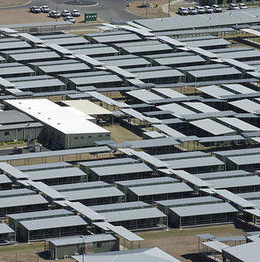'Covert' harassment exposed
 A new survey has uncovered extensive ‘covert’ sexual harassment at Australian mines.
A new survey has uncovered extensive ‘covert’ sexual harassment at Australian mines.
A study by Curtin University’s Centre for Transformative Work finds that one in five women on mining sites reported being touched in a manner that made them feel uncomfortable.
The investigation (PDF), part of the Mental Awareness, Respect, and Safety Program Landmark Study, identified the mining sector as a leader in physical safety, but with significant shortcomings in eradicating systemic sexual harassment.
Professor Sharon Parker says despite the industry's steps towards eliminating overt forms of harassment, the prevalence of unwelcome touching and groping could represent just “the tip of the iceberg”.
“Where we saw even higher levels of harassment were those things beneath the iceberg – and these are often referred to as more covert forms of harassment. They’re a bit more insidious,” she said.
The study found that 41 per cent of women reported experiencing demeaning comments or condescension.
Additionally, a third of women surveyed reported sexist remarks undermining their ability to perform their work, while 11 per cent of men said they had faced crude and offensive sexual remarks.
These forms of harassment, often dismissed as ‘harmless fun’ or jokes, have profound impacts, significantly distressing the recipients and, in many cases, prompting them to consider leaving the sector entirely.
Highlighting the industry's efforts to combat these issues, Rio Tinto Australia's chief executive, Kellie Parker, has pointed to the implementation of training on everyday respect for 86 per cent of the company's leaders.
The initiative follows a comprehensive review by former sex discrimination commissioner Elizabeth Broderick (PDF), which exposed a culture of bullying and underreporting of such incidents.
The MARS Program Landmark Study shows the pressing need for the mining sector to address not only physical safety but also mental well-being and respect in the workplace. With findings indicating a significant portion of mining workers feeling dissatisfied with their jobs and considering employment elsewhere, the study underscores the critical importance of tackling both overt and covert sexual harassment to foster a safer, more inclusive work environment.
The release of the findings of the Mining Worker Study follows the launch of the ‘Respect In Mining Toolkit’ to help WA mining companies create safer workplaces for women.







 Print
Print